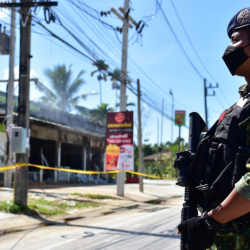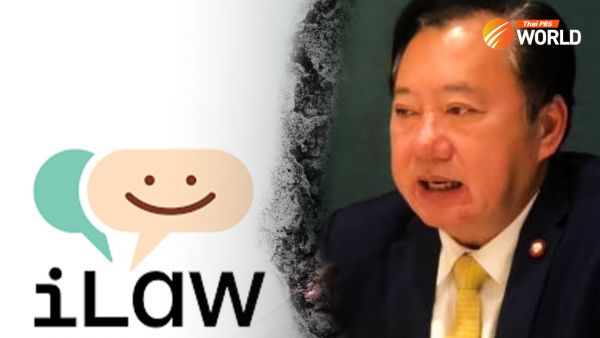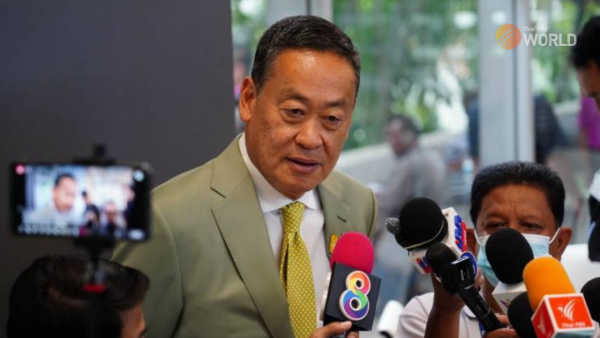Rice policies caught in controversy and politicization ?

Thai society was shocked when well-known serial petitioner Srisuwan Janya, who has been a thorn in the flesh of the powers that be for years, was arrested on January 28 on an extortion charge.
Following a sting operation that included anti-corruption officials, Srisuwan was arrested for allegedly demanding 1.5 million baht from the director-general of the Rice Department in exchange for dropping his plan to lodge a complaint of alleged corruption against the official.
The police action followed the filing of a complaint by Natthakit Khongthip, director-general of the Rice Department. The official claimed that Srisuwan, and two others — Yotwarit Chuklom and Pimnattha Jiraputthiphak, a former United Thai Nation Party candidate — had tried to extort 3 million baht from him.
Yotwarit, also known as Jeng Dokjik, is an aide to Deputy Prime Minister Pirapan Salirathavibhaga.
Before the arrest, Srisuwan had posted on his personal Facebook page that he would in January petition Agriculture and Cooperatives Minister Thamanat Prompow to investigate whether there had been irregularities in the management last year of 19.3 billion baht worth of projects under the Rice Department.
These projects included rice subsidy of 15.3 billion baht allocated to help rice farmers reduce their production cost; promotion of new rice breeds to farmers with a budget of 2 billion baht; a scheme to increase rice yields and the distribution of rice breeds to farmers worth 1.2 billion baht; and rice production cost subsidy under the Bio-Circular-Green Economy model (BCG) worth 874 million baht.
Srisuwan later deleted his post and cancelled a planned press conference.
Rice production cost subsidy
Rice production cost subsidy has been implemented for many years by several governments. For example in crop year 2023-24, around 4.68 million families will benefit from a scheme that hands out 1,000 baht per rai of farmland with a ceiling of 20 rai (3.2 hectares) per family. The government claims the subsidy is necessary as rice production cost has been rising due to rising cost of fuel and chemical fertilizers and pesticides.
The money was channelled to farmers through the state-owned Bank for Agriculture and Agricultural Cooperatives.
Thailand’s rice breeding project has faced criticism for lagging in developing new rice varieties. Vietnam, in comparison, has quickly developed high-quality rice varieties and could catch up with Thailand in high quality rice production for exports.
Under the draft fiscal bill for 2024 pending in Parliament, the Rice Department will receive just 4.4 billion baht, down 75% from 19.6 billion baht in 2023.
Budget for research and development of new breeds is relatively small as only a limited number of scientists specialize in rice breeds, said Somporn Isvilanonda, a senior fellow at Knowledge Network Institute of Thailand.
Meanwhile, Natthakit said earlier that the Rice Department would this year approve eight new breeds in April this year.
Regarding the BCG model, the Thai government in recent years has been paying attention to a green economy due to the global trend of sustainable development.
Thai governments are trying to find better ways of growing rice sustainably with minimal impact on the environment, compared to prevailing practices that use a lot of water, chemical fertilizers and pesticides, which leave their footprints on the environment with potential to harm consumers.
Subsidies under rice policy
The National Rice Policy Committee has laid out several schemes for production in 2023-24. They include providing loans of 34.4 billion baht to delay 3 million metric tons of paddy rice from coming into the market, aimed at shoring up the price during the early months of harvest. Loans totalling 481 million baht are also made available to support rice cooperatives to aggregate a million tons of paddy rice for sale.
Prone to corruption
Rice subsidy has always been controversial and it peaked during the Yingluck Shinawatra government in 2011-14, which precipitated the country’s political crisis. The Pheu Thai Party came to power promising a high price under the rice pledging scheme. Yingluck’s then commerce minister was given a long jail term for corruption in the rice pledging scheme, while Yingluck was also convicted and given a jail sentence for dereliction of duty in preventing corruption in the scheme. Yingluck fled the country shortly before the verdict and has lived in exile abroad.
In the case of rice breed distribution, irregularities could easily happen if it was not well managed, argued Somporn.
Some local communities are strong and well organized while others may be weaker, leading to inefficiency in rice breed distribution and waste of public resources, he noted.
Rice policy has always had a political influence as politicians worry about their vote base in rural areas. Rice farmers comprise the largest voter group in several provinces.
Overall rice market now
Rice price has increased substantially compared with last year. Export price of the benchmark 5 per cent broken white rice now is at US$655 per metric ton compared to the average price of $535 last year, according to the Thai Rice Exporters Association.
The impact of global warming, which caused severe drought in many countries last year, has adversely impacted rice production in several countries, such as Indonesia, Philippines and Malaysia, resulting in higher demand and price for rice imports.
Thailand’s rice exports last year rose 13.6 per cent to 8.8 million metric tonnes and were worth 178.1 billion baht, up 28.4 per cent year on year, according to the Commerce Ministry. The export target for this year is lower at 7.5 million metric tonnes due to an estimated 6 per cent lower rice yield because of the El Niño phenomenon and high competition in the export market.
By Thai PBS World’s Business Desk






